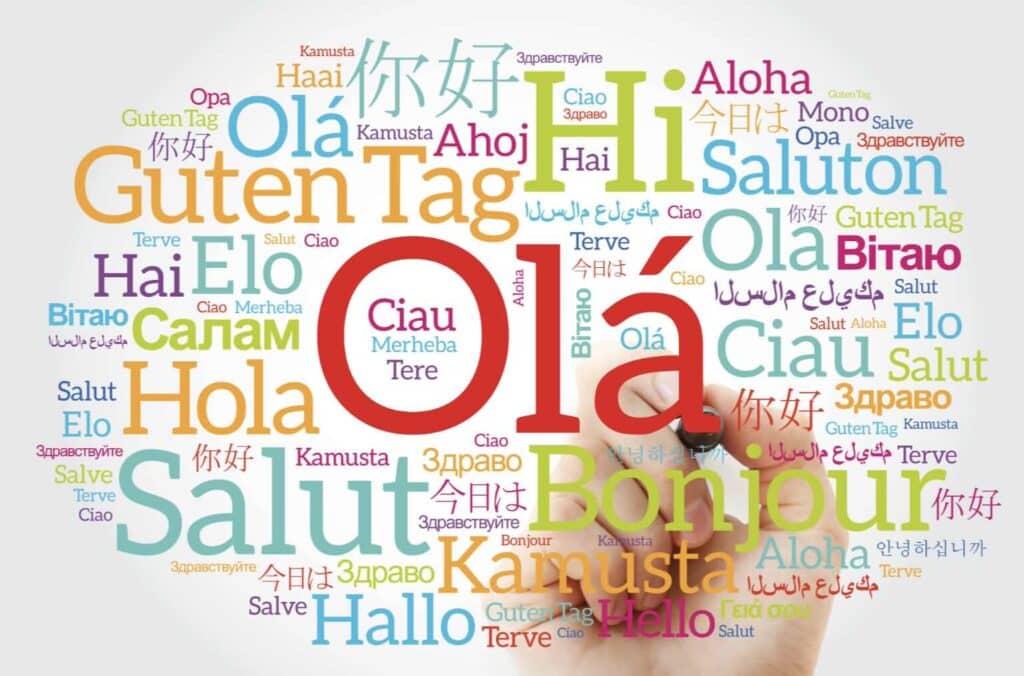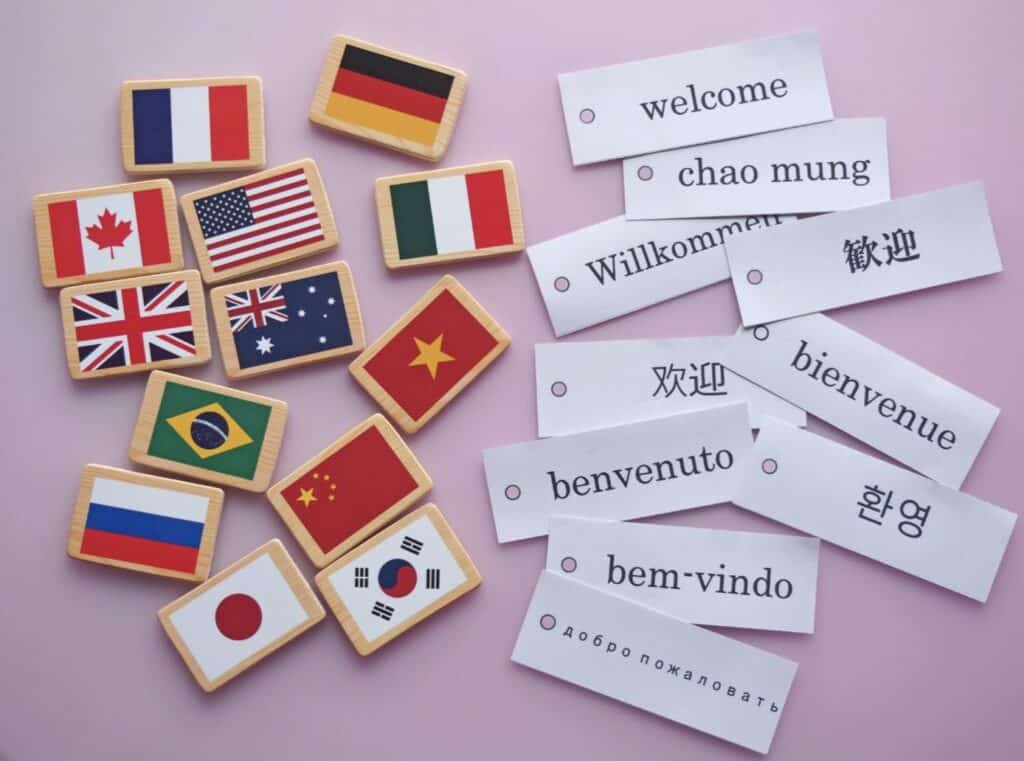Traveling to a new country is an exciting adventure, filled with opportunities to explore unfamiliar landscapes, taste exotic foods, and immerse yourself in a different way of life. But beyond packing your bags and planning your itinerary, there’s one simple yet transformative thing you can do to enrich your experience: learn a few words or phrases in the local language.
Language is far more than a tool for communication—it’s a gateway to understanding culture, building connections, and earning respect. Even if you don’t speak fluently, the effort to say “hello,” “thank you,” or “how are you?” in someone’s native tongue can make all the difference during your travels. Read on as we explore the surprising power of language in forming connections, gaining respect, and enriching travel experiences.
Table of Contents
- The Power of Language: More Than Words
- Small Efforts, Big Impact: Why a Few Words Are Enough
- Cultural Connection: Language as a Bridge
- Practical Benefits: Navigating the World with Ease
- Language and Respect: Why It Matters to Locals
- Real-Life Stories: The Impact of Language
- How to Get Started: Tips for Learning a Few Phrases
- The Magic of Language
- Related Questions
The Power of Language: More Than Words
Language is deeply intertwined with identity, culture, and history. It’s how people express themselves, share their stories, and connect with others. When you make the effort to learn even a few words in someone’s language, you’re not just speaking—you’re showing that you value their culture and respect their way of life.

Why It Matters:
- It Shows Interest and Respect:
Learning a few phrases in the local language signals that you’re not just a tourist passing through, but someone who genuinely cares about the country and its people. It shows that you’re willing to step out of your comfort zone and engage with the culture on a deeper level. - It Breaks Down Barriers:
Language can sometimes feel like a wall separating travelers from locals. A simple “hello” or “thank you” in the native tongue can break down that barrier, making interactions warmer and more personal. - It Builds Connections:
People appreciate it when you make an effort to speak their language, even if you stumble over the words. It creates a sense of camaraderie and mutual understanding, turning strangers into friends.
Small Efforts, Big Impact: Why a Few Words Are Enough
You don’t need to be fluent in a language to make an impression. In fact, even a handful of phrases can go a long way in transforming your travel experience.
Key Phrases to Learn:
- Greetings: “Hello,” “Good morning,” and “Good evening” are universal icebreakers.
- Polite Words: “Thank you,” “Please,” and “Excuse me” show respect and gratitude.
- Basic Questions: “Where is…?”, “How much?”, and “Do you speak English?” can help you navigate unfamiliar places.
- Expressions of Appreciation: Phrases like “This is delicious” or “I love your country” can brighten someone’s day.
Why It Works:
- Locals Appreciate the Effort:
Even if your pronunciation isn’t perfect, locals will often smile and respond warmly to your attempts. It shows that you’re making an effort to connect rather than expecting them to cater to you. - It Opens Doors:
A few words can lead to unexpected opportunities—an invitation to join a local celebration, a recommendation for a hidden gem, or even a new friendship. - It Makes You Memorable:
Travelers who try to speak the local language stand out in the best way. People are more likely to remember you and treat you with kindness.
Cultural Connection: Language as a Bridge
Language is more than a practical tool—it’s a cultural bridge that connects people from different backgrounds. When you learn a few words in the local language, you’re not just communicating; you’re stepping into their world and showing that you value their traditions and way of life.
Examples of Cultural Connection:
- Japan:
In Japan, politeness is deeply ingrained in the culture. Learning phrases like “Arigatou gozaimasu” (thank you) or “Sumimasen” (excuse me) can earn you respect and make interactions smoother. - France:
The French take pride in their language, and even a simple “Bonjour” (hello) or “Merci” (thank you) can go a long way in earning their goodwill. - Thailand:
In Thailand, saying “Sawadee kha” (hello) for women or “Sawadee khráp (hello) for men with a respectful gesture like the wai (a slight bow with hands pressed together) shows that you appreciate their customs. - Morocco:
Learning a few basic Arabic phrases, such as “Shukran” (thank you) or “Salam” (hello), can help you connect with locals and show respect for their culture.
Why It Matters:
- It Honors Their Identity: Speaking someone’s language acknowledges the importance of their culture and history.
- It Deepens Understanding: Language is a window into the values and traditions of a society. By learning a few phrases, you gain insight into how people think and live.

Practical Benefits: Navigating the World with Ease
Learning a few words in the local language isn’t just about cultural connection—it also has practical benefits that can make your travels smoother and more enjoyable.
How It Helps:
- Getting Around:
Whether you’re asking for directions or ordering food, knowing a few key phrases can save you time and frustration. - Avoiding Misunderstandings:
Speaking the local language can help you avoid miscommunication and ensure that you get what you need. - Safety:
In emergencies, knowing how to ask for help or explain your situation can be invaluable. - Better Deals:
Locals are often more willing to negotiate or offer fair prices when you make an effort to speak their language.
Language and Respect: Why It Matters to Locals
When you attempt to speak someone’s language, you’re sending a powerful message: “I respect you and your culture.” This simple act can transform the way locals perceive and interact with you.
Why Locals Appreciate It:
- It Shows Humility:
Learning even a few words requires effort and a humble approach. It shows that you’re willing to adapt rather than expecting others to accommodate you. - It Fosters Trust:
Locals are more likely to trust and help travelers who show a genuine interest in their culture. - It Strengthens Bonds:
Language is a shared experience. By speaking the local tongue, you create a sense of connection and mutual respect.
Real-Life Stories: The Impact of Language
Story 1: A Smile in Paris
A traveler in Paris learned to say “Bonjour” and “Merci” before her trip. Despite speaking no other French, she found that locals were far more welcoming and helpful when she greeted them in their language.
Story 2: Friendship in Thailand
A backpacker in Thailand learned to say “Sawadee kha” and “Khop khun kha” (thank you). Her efforts led to an invitation to a local wedding, where she experienced Thai culture in a way she never expected.
Story 3: Connection in Morocco
A tourist in Morocco learned a few basic Arabic phrases, such as “Salam” and “Shukran.” His taxi driver was so impressed that he offered to show him hidden spots in the city, creating a memorable experience.

How to Get Started: Tips for Learning a Few Phrases
1. Focus on Basics:
Start with greetings, polite words, and commonly used phrases.
2. Use Language Apps:
Apps like Duolingo, Babbel, or Google Translate can help you learn quickly.
3. Practice Pronunciation:
Even if you’re not perfect, try to pronounce words as accurately as possible.
4. Ask Locals for Help:
Don’t be afraid to ask locals to teach you a few words—they’ll appreciate your curiosity.
5. Write It Down:
Keep a small notebook with key phrases for reference during your travels.
The Magic of Language
Language has the power to transform your travel experiences, turning ordinary moments into extraordinary connections. By learning even a few words in the local language, you show respect, build bridges, and open doors to deeper cultural understanding.
So, the next time you pack your bags for an adventure, take a moment to learn a few phrases. Whether it’s “hello,” “thank you,” or “how are you?”—those simple words can make all the difference. You’ll find that language is not just a tool for communication but a gift that enriches your journey and brings people closer together.
Travel isn’t just about visiting places—it’s about connecting with people. And language is the key to making those connections meaningful.
At A Bus On A Dusty Road, we discuss history, travel, life, sailing, and ex-pat living. We are all about “Living Life As A Global Citizen.” We explore social, cultural, and economic issues and travel.
We would love to have you be part of our community. Sign up for our newsletter to keep up-to-date by clicking here. If you have any questions, you can contact me, Anita, by clicking here.
Listen to our Podcast called Dusty Roads. You can find it on all major podcast platforms. Try out listening to one of our podcasts by clicking here.
Subscribe to our A Bus On A Dusty Road YouTube Channel filled with great videos and information.
Related Questions
Vietnamese Propaganda Art, All You Need To Know
As you travel around Vietnam, you will see these large posters on the intersections and street corners which depict some kind of theme about life in Vietnam. These posters are known as a propaganda art posters.
Propaganda posters first started in the Soviet Union and then spread to other socialist countries like Vietnam. For many years, posters have been an essential part of the Vietnamese art scene. You can still see the propaganda art posters around Vietnam.
You can discover more by reading Vietnamese Propaganda Art, All You Need To Know by clicking here.
The Cambodian Krama Scarf – Story Behind This Iconic Scarf
The Cambodian Krama scarf is a gingham scarf used not only as a scarf but also as a bandanna, baby carrier, or even a blanket. Traditionally, each Cambodian would hand-weave their scarf in cotton or silk. Many in the Western world may recognize the red and white gingham scarf that the Khmer Rouge used when they ruled Cambodia. Despite its checkered history, the Khmer Krama scarf symbolizes Cambodian strength, courage, and resilience.
You can learn more by reading The Cambodian Krama Scarf – Story Behind This Iconic Scarf by clicking here.
10 Tips to Travel & Run A Successful Business While Traveling
Going on an adventure to see the world can be a wonderful and exciting experience. But, the adventure will be even greater if you can travel and see the world while running a successful business. Today with technology and remote working, this is possible more than ever before. Here are 10 of our best advice on how to travel the world and still maintain your business operations so you can maximize exploration time and financial success.
By clicking here, you can discover 10 Tips to Travel & Run A Successful Business While Traveling.

